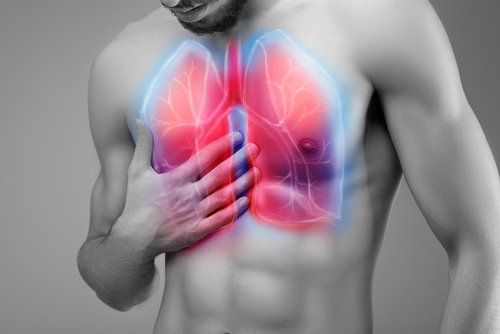Phase 2 Results Demonstrate Potential of FibroGen’s Pamrevlumab to Treat IPF
Written by |

The latest Phase 2 trial results of the investigative therapy Pamrevlumab in patients with idiopathic pulmonary fibrosis (IPF) further demonstrated the drug’s therapeutic potential to reduce fibrosis progression and ameliorate IPF clinical manifestations, with no reported adverse toxicity.
So concludes an oral presentation, “RAISE, a randomized, placebo-controlled, double-blind Phase 2 clinical trial of pamrevlumab (FG-3019) in IPF patients” at the European Respiratory Society (ERS) International Congress 2017 in Milan, Italy.
Pamrevlumab, also known as FG-3019, is an antibody developed by San Francisco-based FibroGen to specifically target connective tissue growth factor (CTGF). This factor plays a role in the molecular mechanisms involved in fibrosis progression-related diseases including IPF, pancreatic cancer and Duchenne muscular dystrophy (DMD).
The Phase 2 trial (NCT01890265) included 103 IPF patients who randomly received intravenous infusions of 30 mg/kg of the anti-CTGF antibody or a placebo control, every three weeks for up to 48 weeks. Only 10 percent of the patients treated with pamrevlumab experienced a forced vital capacity (FVC; a measure of lung function) predicted decline of more than 10 percent, compared to 31.4 percent in the placebo group.
After the 48-week follow-up, pamrevlumab significantly improved FVC values. Researchers observed a 2.85 percent decline in the pamrevlumab arm versus 7.17 percent in the placebo arm. This result is in accordance with data from a previous Phase 2 open-label IPF study (NCT01262001). The treatment also significantly improved the FVC volume decline (129 ml) compared to placebo (308 ml).
Overall, pamrevlumab was found to be well tolerated, with no safety risks reported during the trial.
“It is exciting to see positive results for this new therapeutic agent specifically targeting a key mechanism in the fibrotic disease process,” Dr. Luca Richeldi, who heads the pulmonary medicine division at Rome’s Agostino Gemelli University Hospital, said in a press release. “In contrast to other agents, pamrevlumab brings a unique therapy to the treatment of IPF.”
Additional data presented at ERS 2017 from a preclinical study in a radiation-induced lung fibrosis mouse model further supported pamrevlumab’s therapeutic potential. In this study, researchers compared the efficacy of the CTGF inhibitor to approved therapies Esbriet (pirfenidone) and Ofev (nintedanib).
Mice treated with pamrevlumab alone were found to exhibit lower lung density – suggestive of reduced lung fibrosis and remodeling — than mice given either of the approved drugs. Also, the combination of pamrevlumab with either Esbriet or Ofev did not add a significant clinical benefit compared to pamrevlumab alone.
A poster presentation, “Therapeutic pamrevlumab (FG-3019) is more effective than pirfenidone or nintedanib in a mouse radiation-induced lung fibrosis model,” focused on the study’s results.






